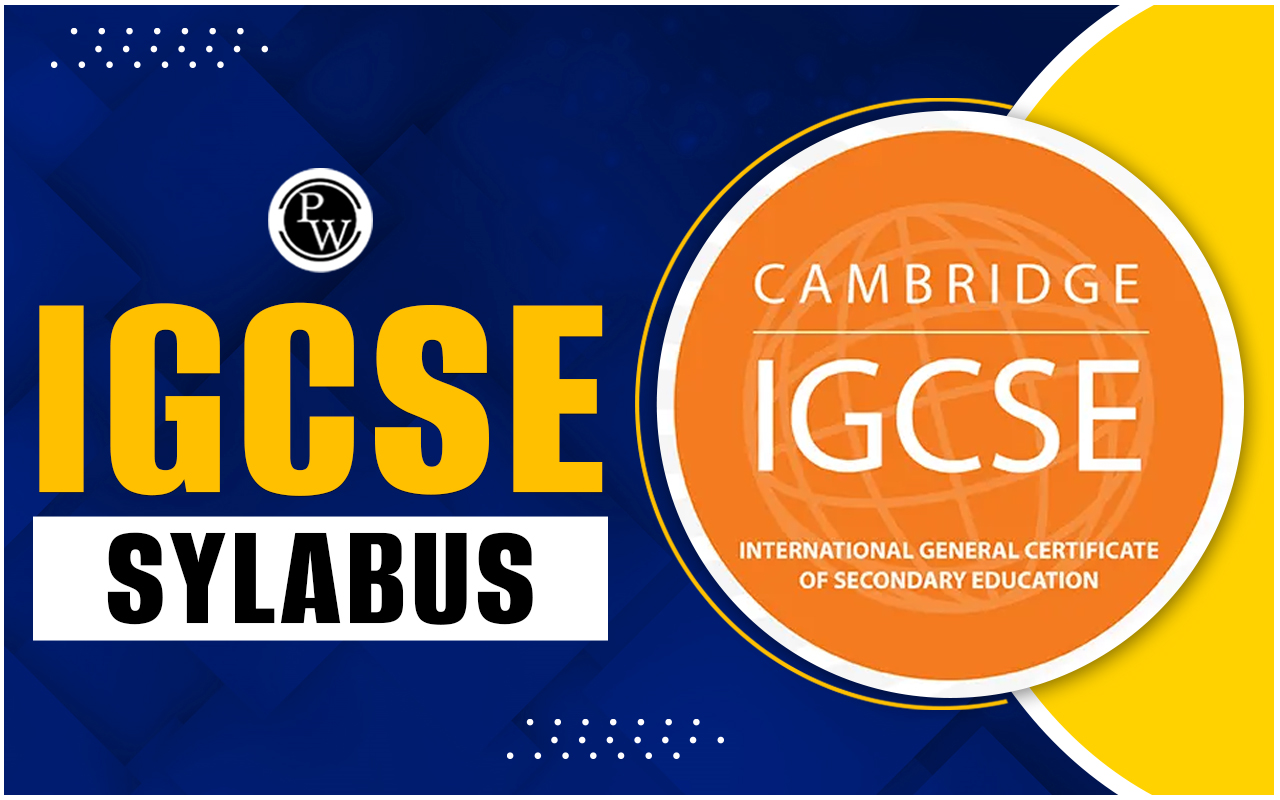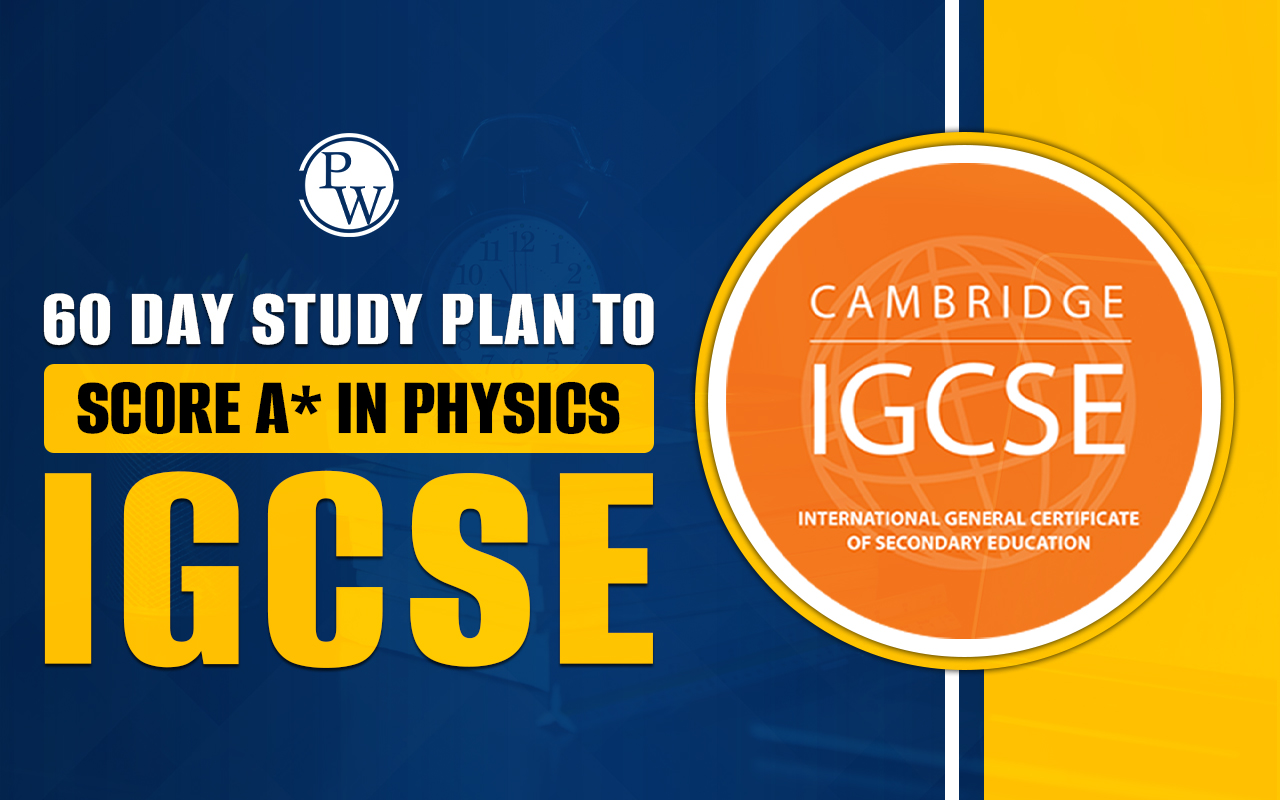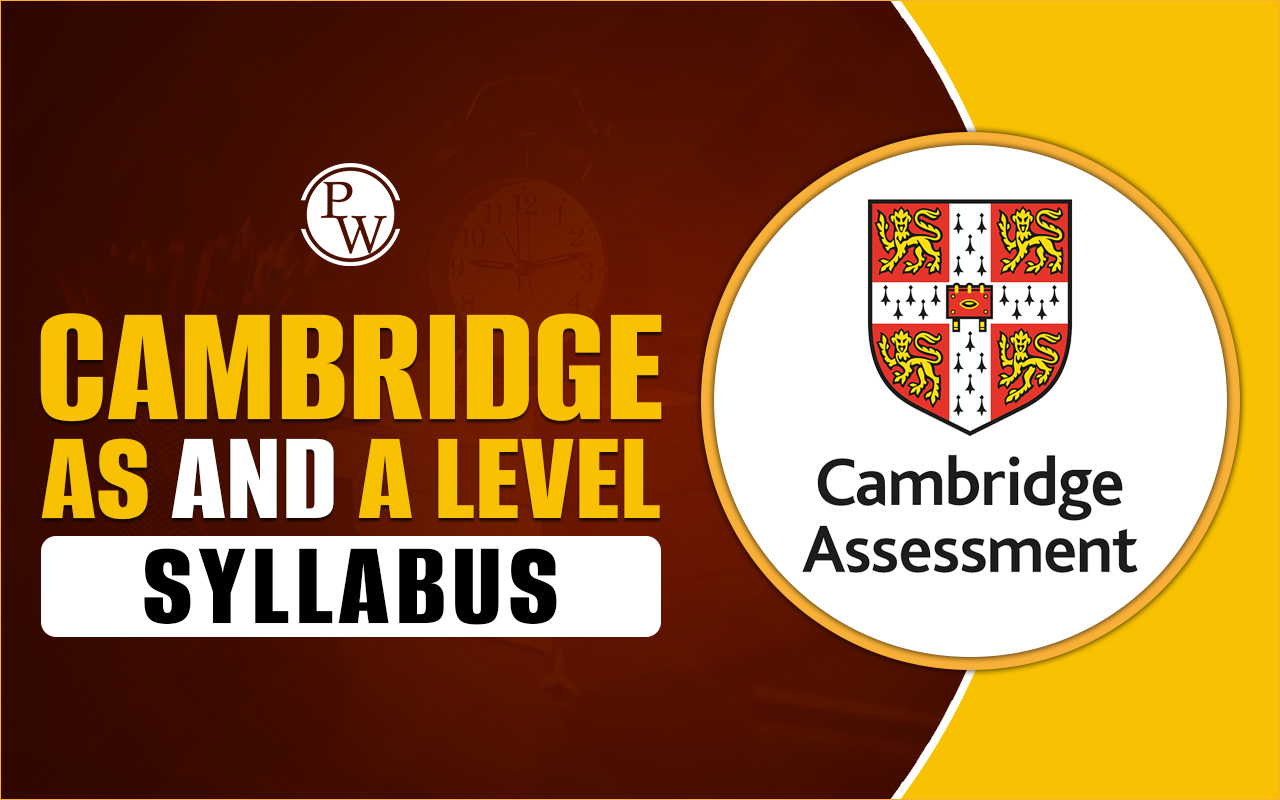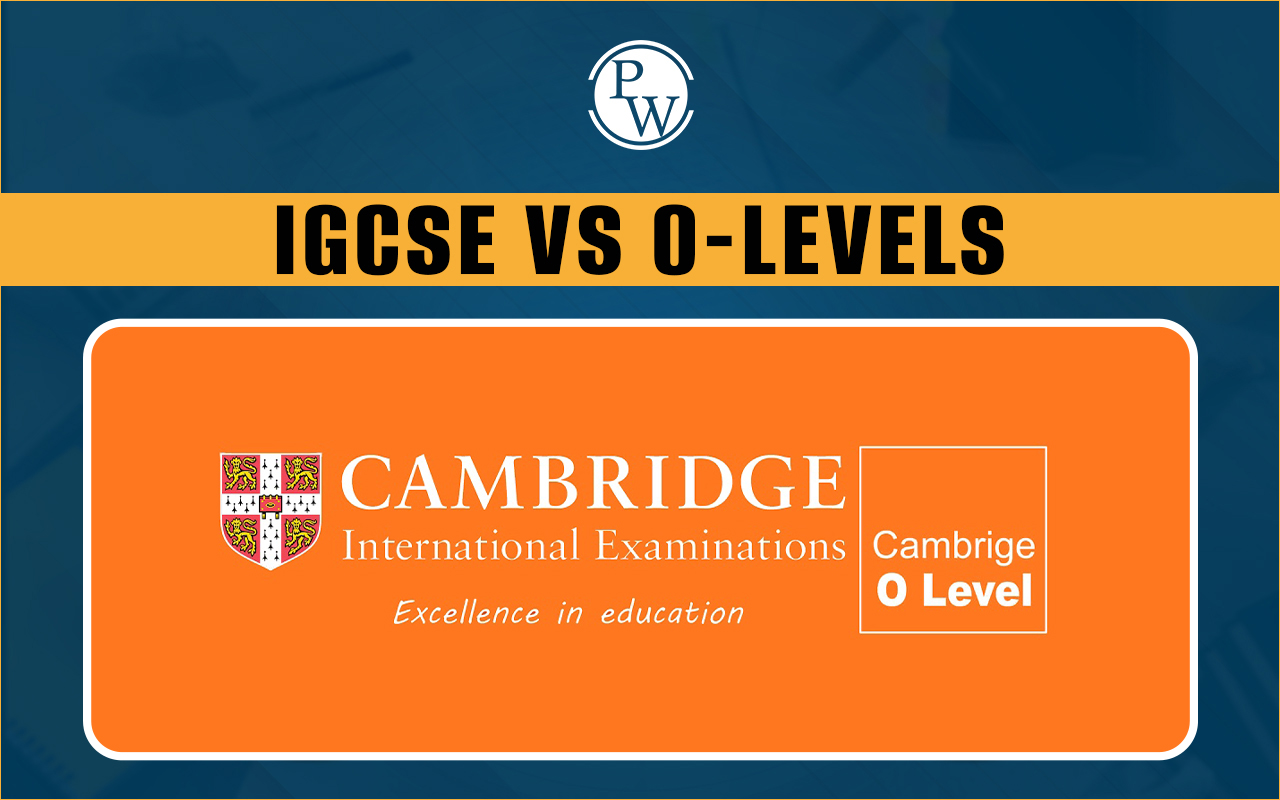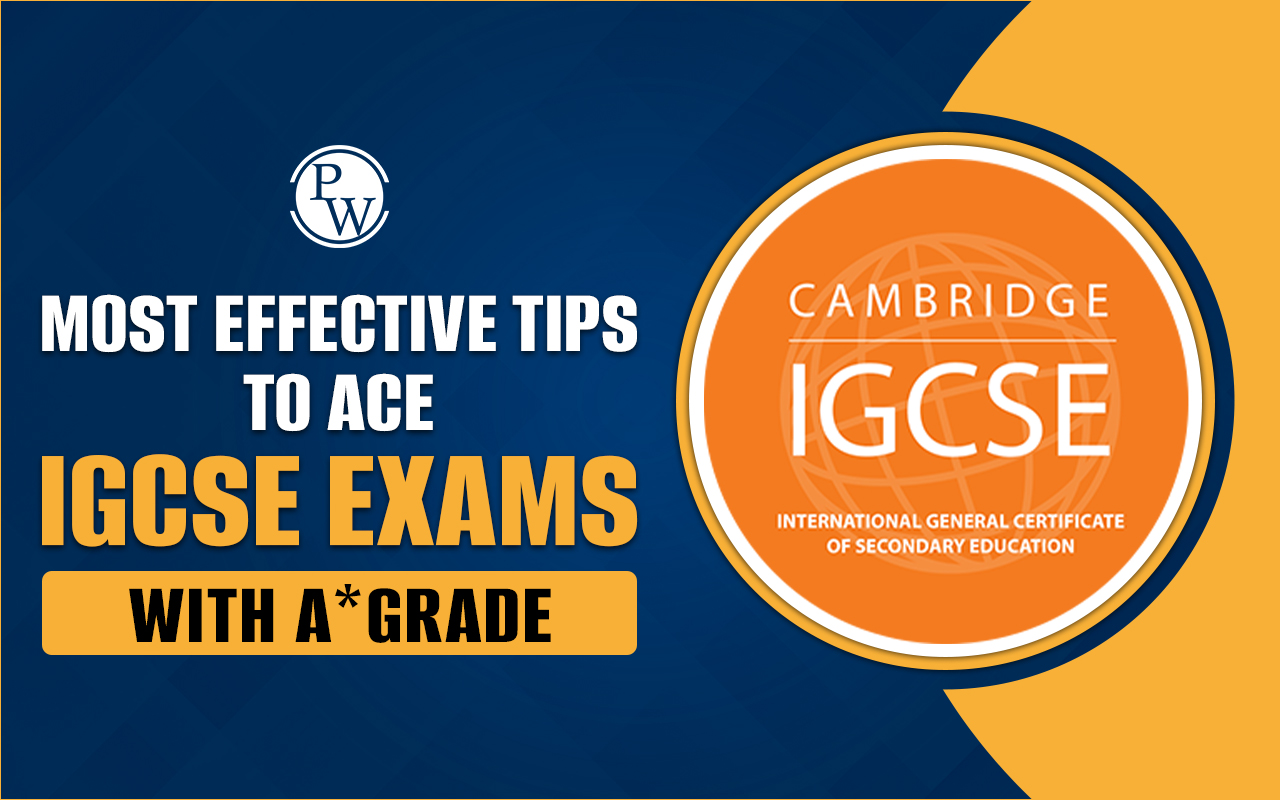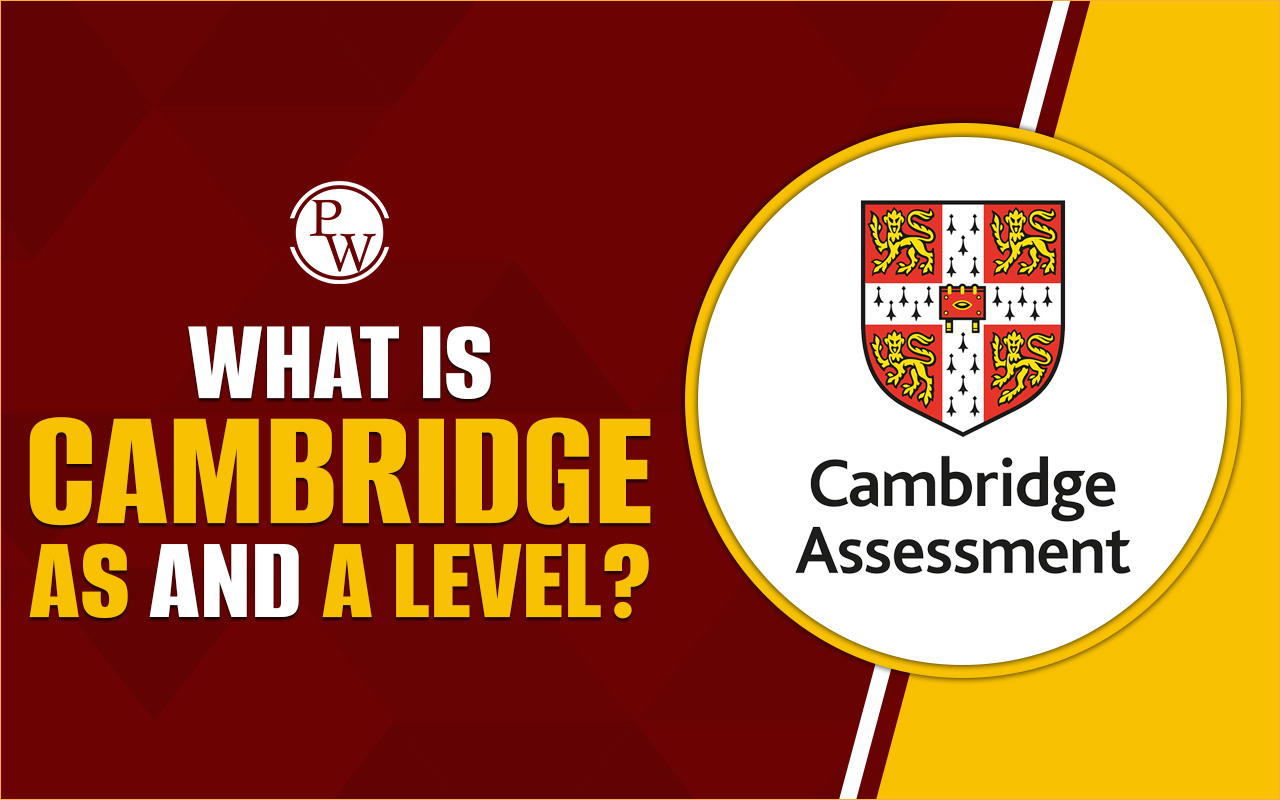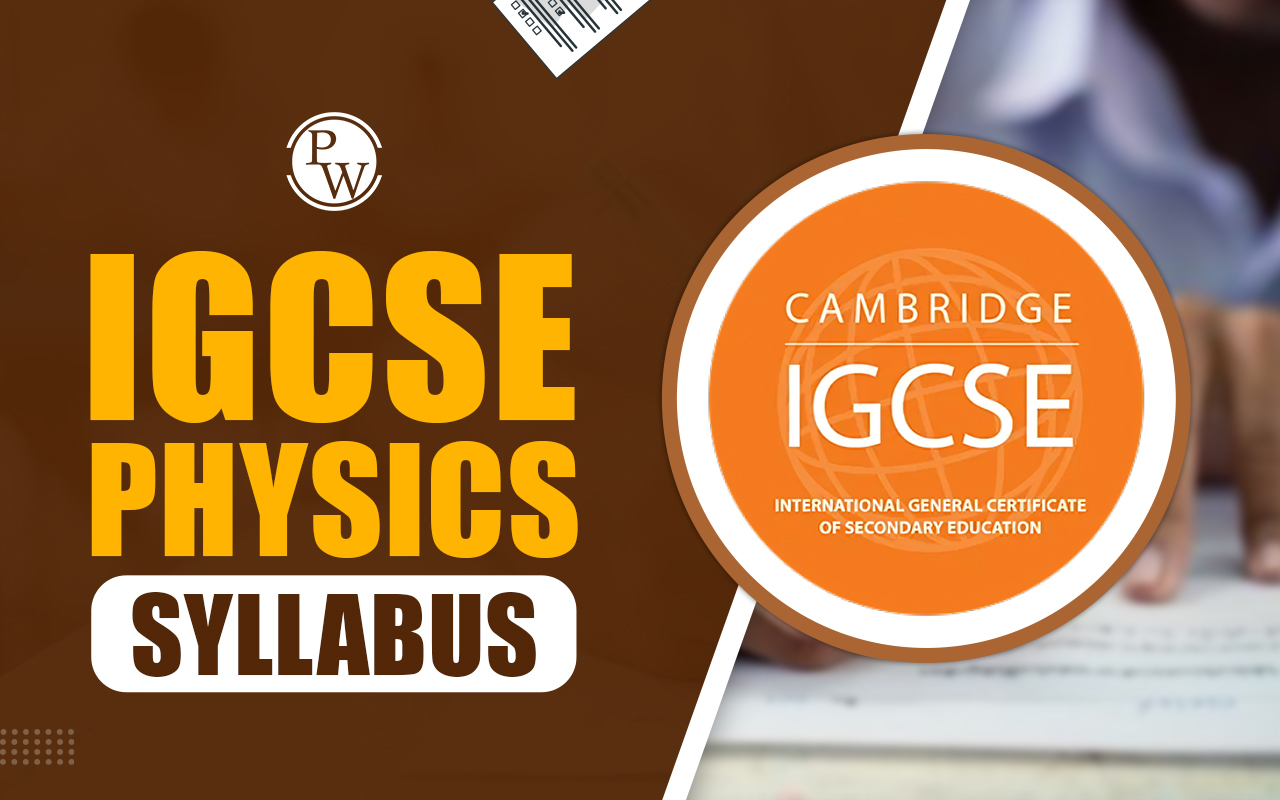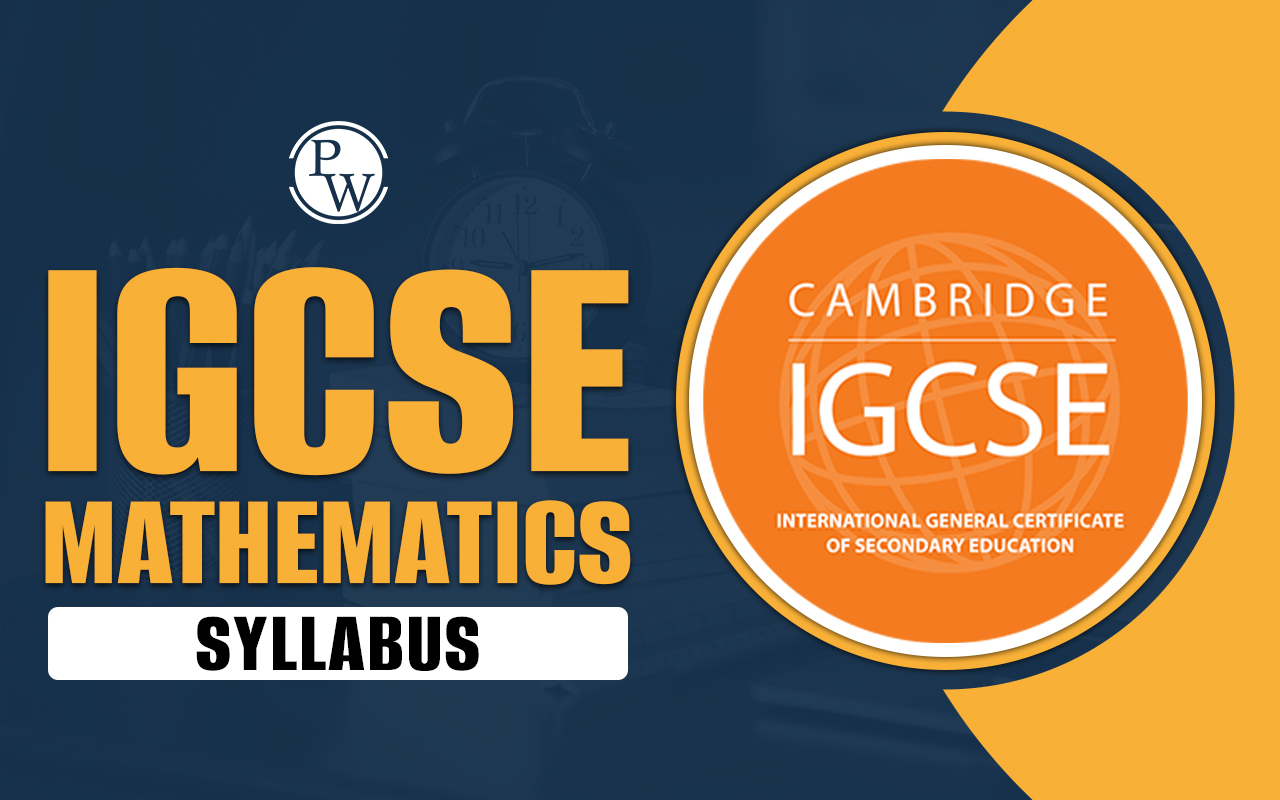
IGCSE Syllabus 2024: Cambridge IGCSE curriculum offers a variety of routes for learners with a wide range of abilities including students whose first language is not English. Students can check the subject-wise Cambridge IGCSE Syllabus in this article below. This syllabus is created specially for an International student body and to avoid cultural bias. IGCSE Syllabus includes various subjects such as Business Studies, Chemistry, Computer Science, Co-ordinated Science, Economics, French, Hindi, Mathematics, Physics, etc.
CAIE IGCSE Syllabus 2024 Overview
Students who are willing to study at Cambridge curriculum can check the overview of the IGCSE Syllabus in the table below. IGCSE Syllabus includes various subjects including Chemistry, Computer Science, Co-ordinated Science, Economics, French, Hindi, etc.| CAIE IGCSE Syllabus Overview | |
| Particulars | Details |
| Offered by | Cambridge IGCSE curriculum |
| Languages | First language, Second language, Foreign language, etc. |
| Humanities and Social Science | Geography, English Literature, History, etc |
| Sciences | Biology, Chemistry, Physics, etc |
| Mathematics | Mathematics, Additional Mathematics, etc |
| Creative, Technical & Vocational | Accounting, Business Studies, Computer Studies, Music, etc |
How to Choose Subjects in CAIE IGCSE?
The Cambridge IGCSE curriculum offers more than 70 subjects including 30 languages. Students must choose their subjects depending on their interests and career aspirations. There are six subject groups offered by Cambridge IGCSE Group 1: English Language & Literature Group 2: Languages Group 3: Humanities & Social Sciences Group 4: Sciences Group 5: Mathematics Group 6: Creative and Vocational Students need to choose subjects from these groups based on their school. You must remember the below points while choosing the subjects.- You must choose IGCSE curriculum subjects choices very wisely. The choices should be based on your interests, higher studies, and career goals.
- You should remember that top-ranking universities will only consider top grades and the overall performance attained through the IGCSE course and not the number of subjects.
- For example, if a student wants to pursue engineering in the future then he/she must choose subjects that help them to prepare better for the same. If a student wants to pursue Medicine must choose Biology with other science subjects. But they must remember that the combination should include English Language, English Literature, Mathematics, two subjects from the Sciences group, two from the Humanities group, and one from the Creative Group .
IGCSE Syllabus 2024 for Business Studies
Students who wish to study Business Studies at Cambridge curriculum can check the included sub-topics in the IGCSE Syllabus for Business Studies. This syllabus enables students to apply their knowledge and critical understanding to solve any problems. It develops skills of numeracy, literacy, enquiry, selection and use of relevant sources of information, presentation and interpretation| IGCSE Syllabus for Business Studies | |
| Topic | Sub-Topic |
| Understanding Business Activity |
|
| People in Business |
|
| Marketing |
|
| Operations Management |
|
| Financial Information and Decisions |
|
| External Influences on Business Activity |
|
IGCSE Syllabus 2024 for Chemistry
Students can check the sub-topics included in the IGCSE Syllabus for Chemistry in the table below. This syllabus aims to enable students to acquire scientific knowledge, theories, and practices. It helps students to develop a range of experimental skills, including handling variables and working safely.| IGCSE Syllabus for Chemistry | |
| Topics | Sub-Topics |
| States of Matter |
|
| Atoms, Elements, and Compounds |
|
| Stoichiometry |
|
| Electrochemistry |
|
| Chemical Energetics | Exothermic and endothermic reactions |
| Chemical Reactions |
|
| Acids, Bases and Salts |
|
| The Periodic Table |
|
| Metals |
|
| Chemistry of the Environment |
|
| Organic Chemistry |
|
| Experimental Techniques and Chemical Analysis |
|
Cambridge IGCSE Past Question Papers
IGCSE Syllabus 2024 for Biology
The syllabus for IGCSE Biology includes Cell Structure, Biological molecules, Enzyme, Cell membranes and transport, Gas Exchange, Immunity, Transport in plants, etc. Candidates can check the topics and sub-topics asked in the IGCSE Syllabus for Biology in the table below.| IGCSE Syllabus for Biology | |
| Topics | Sub-Topics |
| Cell structure |
|
| Biological molecules |
|
| Enzymes |
|
| Cell membranes and transport |
|
| The mitotic cell cycle |
|
| Nucleic acids and protein synthesis |
|
| Transport in plants |
|
| Transport in mammals |
|
| Gas exchange |
|
| Infectious diseases |
|
| Immunity |
|
| Energy and respiration |
|
| Photosynthesis |
|
| Homeostasis |
|
| Control and coordination |
|
| Inheritance |
|
| Selection and evolution |
|
| Classification, biodiversity and conservation |
|
| Genetic technology |
|
IGCSE Syllabus 2024 for Computer Science
Interested candidates can check the sub-topics included in IGCSE Syllabus for Computer Science in the table below. This syllabus develops the computational thinking skills, necessary skills to solve computer-based problems using a high-level programming language. It helps to understand the component parts of computer systems, the internet as a means of communication and its associated risks.| IGCSE Syllabus for Computer Science | |
| Topics | Sub-topics |
| Computer Systems | |
| Data Representation |
|
| Data Transmission |
|
| Hardware |
|
| Software |
|
| The Internet and its Uses |
|
| Automated and Emerging Technologies |
|
| Algorithms, Programming and Logic | |
| Algorithm Design and Problem-Solving | - |
| Programming |
|
| Database | - |
| Boolean Logic | - |
IGCSE Syllabus 2024 for Co-ordinated Science
Candidates can check the topics and sub-topics included in Co-ordinated Science of IGCSE in the table below. This syllabus provides an enjoyable and worthwhile educational experience for all learners, whether or not they go on to study science beyond this level. It also helps to Develop skills that are useful in dailylife, encourage a systematic approach for solving any problem, etc.| IGCSE Syllabus for Co-ordinate Science | ||
| Biology | Chemistry | Physics |
|
|
|
IGCSE Syllabus 2024 for Economics
Interested candidates can check the topics and sub-topics included in IGCSE Syllabus for Economics in the table below. This syllabus aims to enable the students to know and understand economic terminology, concepts, and theories.| IGCSE Syllabus for Economics | |
| Topics | Sub-Topics |
| The Basic Economic Problem |
|
| The Allocation of Resources |
|
| Microeconomic Decision Makers |
|
| Government and the Macroeconomy |
|
| Economic Development |
|
| International Trade and Globalisation |
|
IGCSE Syllabus 2024 for Sociology
Candidates can check the topics and sub-topics included in the IGCSE Syllabus for Sociology in the table below.| IGCSE Syllabus for Sociology | |
| Topics | Sub-topics |
| Socialisation and the creation of social identity |
|
| Methods of research |
|
| Theories of the family and social change |
|
| Family roles and changing relationships |
|
| Education and society |
|
| Education and inequality |
|
| Key debates, concepts and perspectives |
|
| Contemporary issues |
|
| Ownership and control of media |
|
| Media representation and effects |
|
| Religion and social order |
|
| The influence of religion |
|
IGCSE Syllabus 2024 for Geography
IGCSE Syllabus for Geography includes topics such as Population and settlement, The natural environment, and Economic Development. Candidates can check the topic-wise sub-topics in the table below| IGCSE Syllabus for Geography | |
| Topic | Sub-topic |
| Population and settlement |
|
| The natural environment |
|
| Economic Development |
|
IGCSE Syllabus 2024 for History
Candidates can check the topics and sub-topics included in IGCSE Syllabus in the table below. Candidates study all the core content in either Option A The nineteenth century: the development of modern nation states, 1848–1914 or Option B The twentieth century: international relations since 1919.| IGCSE Syllabus for History | |
| Topic | Sub-topic |
| Option A The nineteenth century: the development of modern nation-states, 1848–1914 | 1. Were the Revolutions of 1848 important? 2. How was Italy unified? 3. How was Germany unified? 4. Why was there a civil war in the United States and what were its results? 5. Why, and with what effects, did Europeans expand their overseas empires in the nineteenth century? 6. What caused the First World War? |
| Option B The twentieth century: international relations since 1919 | 1. Were the peace treaties of 1919–23 fair? 2. To what extent was the League of Nations a success? 3. Why had international peace collapsed by 1939? 4. Who was to blame for the Cold War? 5. How effectively did the United States contain the spread of Communism? 6. How secure was the USSR’s control over Eastern Europe, 1948–c.1989? 7. Why did events in the Gulf matter, c.1970–2000? |
IGCSE Syllabus 2024 for Environmental Management
Candidates can check the topics and sub-topics included in the IGCSE Syllabus for Environmental Management in the table below. This syllabus aims to enable students to acquire knowledge of natural systems which make life possible on Earth.| IGCSE Syllabus for Environmental Management | |
| Topics | Sub-Topics |
| Rocks and Minerals and Their Exploitation |
|
| Energy and the Environment |
|
| Agriculture and the Environment |
|
| Water and its Management |
|
| Oceans and Fisheries |
|
| Managing Natural Hazards |
|
| The Atmosphere and Human Activities |
|
| Human Population |
|
| Natural Ecosystems and Human Activities |
|
IGCSE Syllabus 2024 for First Language English
Candidates can check the topics and sub-topics of IGCSE Syllabus for First Language English in the table below. This syllabus aims to enable students to read a wide range of texts, fluently and with good understanding, enjoying and appreciating a variety of languages.| IGCSE Syllabus for First Language English | ||
| Reading | Writing | Speaking and Listening |
|
|
|
IGCSE Syllabus 2024 for English Language
Interested candidates can check the topics and sub-topics included in IGCSE Syllabus for English Language in the table below. The English Language syllabus is divided into four papers such as Paper 1 Reading, Paper 2 Writing, Paper 3 Language Analysis, and Paper 4 Language Topics.| IGCSE Syllabus for English Language | |||
| Paper 1 Reading | Paper 2 Writing | Paper 3 Language Analysis | Paper 4 Language Topics |
|
|
|
|
IGCSE Syllabus 2024 for Literature in English
IGCSE Syllabus for Literature in English includes four papers such as Paper 1 Drama and Poetry, Paper 2 Prose and Unseen, Paper 3 Shakespeare and Drama, and Paper 4 Pre- and Post- 1900 Poetry and Prose. Candidates can check the topics and sub-topics included in IGCSE Syllabus for Literature in English in the table below.| IGCSE Syllabus for Literature in English | |||
| Paper 1 Drama and Poetry | Paper 2 Prose and Unseen | Paper 3 Shakespeare and Drama | Paper 4 Pre- and Post- 1900 Poetry and Prose |
| Section A Drama: All My Sons, Much Ado About Nothing, The Trials of Brother Jero and Jero’s Metamorphosis, The Changeling Section B Poetry: Selected Poems of Robert Browning, Songs of Ourselves, Volume 2, Gillian. Skirrid Hill Clarke | Section A Prose: Howards End, Small Island, Petals of Blood, and selected poems of Andrea Levy Section B Unseen | Section A Shakespeare: The Winter’s Tale, King Lear. Section B Drama: The Township Plays (The Island, Sizwe Bansi is Dead, Nongogo, No-Good Friday) The Glass Menagerie Indian Ink | Section A Pre - 1900 Poetry and Prose: The Knight’s Tale, Paradise Lost: Books, Persuasion, Tess of the D’Urbervilles, Oliver Twist |
IGCSE Syllabus 2024 for French
Candidates can check the topics and sub-topics included in the IGCSE Syllabus for French in the table below. The syllabus for French includes skills and topic areas.| IGCSE Syllabus for French | ||
| Skills | Topics Areas | |
|
Everyday activities | • Time expressions (e.g. telling the time, days, days of the week, months, seasons) • Food and drink (e.g. meals, fruit, and vegetables, meat, fish and seafood, snacks, drinks, cutlery, and utensils) • The human body and health (e.g. parts of the body, health, and illness) • Travel and transport |
| Personal and social life | Self, family, and friends • In the home (e.g. rooms, living room, kitchen, bedroom, bathroom, furniture and furnishings, garden, household appliances) • Colours • Clothes and accessories • Leisure time (e.g. things to do, hobbies, sport) | |
| The world around us | People and places (e.g. continents, countries, and nationalities, compass points) • The natural world, the environment, the climate, and the weather • Communications and technology (e.g. the digital world, documents, and texts) • The built environment (e.g. buildings and services, urban areas, shopping) • Measurements (e.g. size, shape) • Materials | |
| The world of work | • Education (e.g. learning institutions, education and training, the classroom, learning tools, subjects, studying) • Work (e.g. jobs and careers, the workplace) | |
| The international world | • Countries, nationalities, and languages • Culture, customs, faiths, and celebrations | |
IGCSE Syllabus 2024 for Hindi
The Hindi syllabus in IGCSE Cambridge curriculum includes Reading, Listening, Writing, and Speaking. Candidates can check the topics for these four tests are given below.| IGCSE Syllabus for Hindi | |
| Tests | Topics |
| Reading |
|
| Writing |
|
| Listening |
|
| Speaking |
|
IGCSE Syllabus 2024 for Mathematics
Candidates can check the topics and sub-topics included in the IGCSE Syllabus for Mathematics in the table below. This topic develops an understanding of mathematical principles, concepts, and methods in a way that encourages confidence, provides satisfaction and enjoyment, and develops a positive attitude towards mathematics.| IGCSE Syllabus for Mathematics | |
| Topics | Sub-topics |
| Number | - |
| Algebra |
|
| Shape and Space |
|
| Probability and Statistics |
|
IGCSE Syllabus 2024 for Physics
Candidates can check the topics and sub-topics included in the IGCSE Syllabus for Physics in the table below. This syllabus helps students to acquire scientific knowledge and understanding of scientific theories and practice and develop a range of experimental skills, including handling variables and working safely.| IGCSE Syllabus for Physics | |
| Topics | Sub-topics |
| Motion, Forces and Energy |
|
| Thermal Physics |
|
| Waves |
|
| Electricity and Magnetism |
|
| Nuclear Physics |
|
| Space physics |
|
IGCSE Syllabus : FAQs
Q1. IGCSE tougher than CBSE?
Ans. IGCSE is a bit easier than CBSE, especially in basic subjects. But some IGCSE subjects can be hard based on what you choose.
Q2. What are the different subjects available in IGCSE Syllabus?
Ans. IGCSE Syllabus includes various subjects such as Business Studies, Chemistry, Computer Science, Co-ordinated Science, Economics, French, Hindi, Mathematics, Physics, etc.
Q3. What are the subject groups in IGCSE Syllabus?
Ans. IGCSE Syllabus offers 6 groups i.e., Group 1: English Language & Literature, Group 2: Languages, Group 3: Humanities & Social Sciences, Group 4: Sciences, Group 5: Mathematics, Group 6: Creative and Vocational.
Q4. What type of Math is in IGCSE Math Syllabus?
Ans. IGCSE Math syllabus is divided into 4 topics i.e., Number, Algebra, Shape and Space, and Probability & Statistics. Most of the weightage in Extended Mathematics is taken by Algebra and Shape and Space.
Q5. How to download IGCSE Syllabus PDF?
Ans. Interested students can go to the official website of Cambridge IGCSE i.e., cambridgeinternational.org, choose their choice of subjects and click on the PDF link to download Cambridge IGCSE Syllabus PDF.
🔥 Trending Blogs
Talk to a counsellorHave doubts? Our support team will be happy to assist you!

Free Learning Resources
PW Books
Notes (Class 10-12)
PW Study Materials
Notes (Class 6-9)
Ncert Solutions
Govt Exams
Class 6th to 12th Online Courses
Govt Job Exams Courses
UPSC Coaching
Defence Exam Coaching
Gate Exam Coaching
Other Exams
Know about Physics Wallah
Physics Wallah is an Indian edtech platform that provides accessible & comprehensive learning experiences to students from Class 6th to postgraduate level. We also provide extensive NCERT solutions, sample paper, NEET, JEE Mains, BITSAT previous year papers & more such resources to students. Physics Wallah also caters to over 3.5 million registered students and over 78 lakh+ Youtube subscribers with 4.8 rating on its app.
We Stand Out because
We provide students with intensive courses with India’s qualified & experienced faculties & mentors. PW strives to make the learning experience comprehensive and accessible for students of all sections of society. We believe in empowering every single student who couldn't dream of a good career in engineering and medical field earlier.
Our Key Focus Areas
Physics Wallah's main focus is to make the learning experience as economical as possible for all students. With our affordable courses like Lakshya, Udaan and Arjuna and many others, we have been able to provide a platform for lakhs of aspirants. From providing Chemistry, Maths, Physics formula to giving e-books of eminent authors like RD Sharma, RS Aggarwal and Lakhmir Singh, PW focuses on every single student's need for preparation.
What Makes Us Different
Physics Wallah strives to develop a comprehensive pedagogical structure for students, where they get a state-of-the-art learning experience with study material and resources. Apart from catering students preparing for JEE Mains and NEET, PW also provides study material for each state board like Uttar Pradesh, Bihar, and others
Copyright © 2026 Physicswallah Limited All rights reserved.

